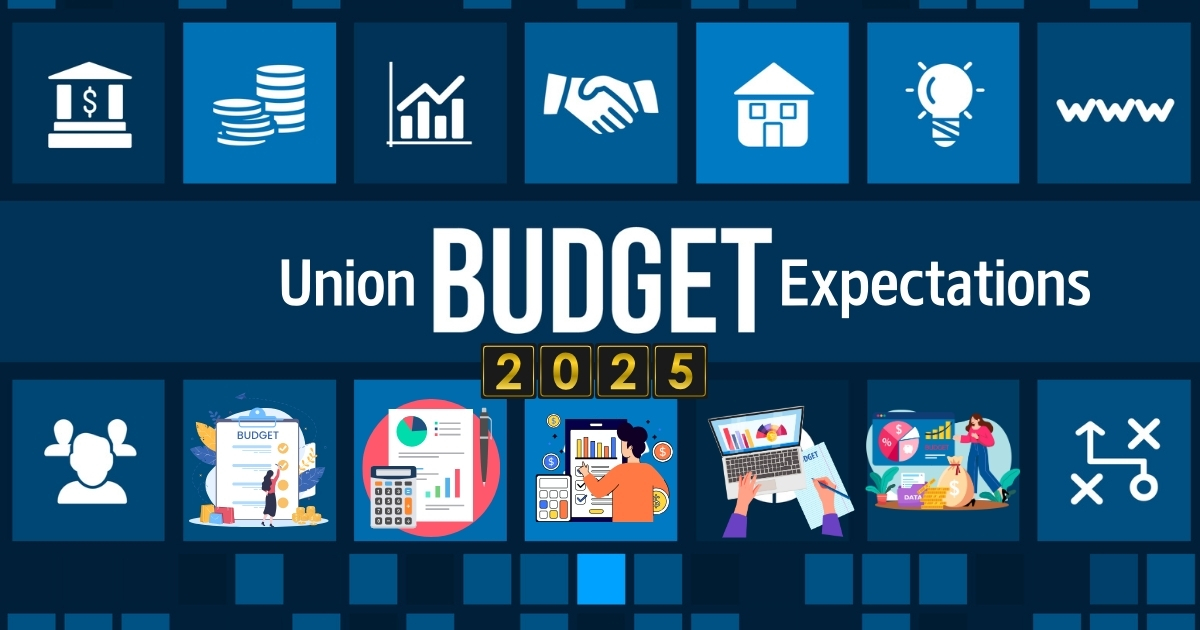India’s finance minister Nirmala Sitharaman is all set to table the Union Budget 2025 next month. Several industry experts are betting on a slew of measures to increase consumption, reduce compliance burden, and other significant announcements pertaining to various key sectors including manufacturing, insurance, IT, and telecom, among others.
Expected Budget Date
India’s next budget session will be held between January 31 to April 4. The finance minister Nirmala Sitharaman is expected to present the Modi 3.0 Govt’s much-awaited budget on February 1 at 11 AM. Indian President Droupadi Murmu will commence this joint session by addressing both the houses.
Sector-wise Budget Expectations from Modi 3.0 Govt
Now, let us have a look at some of the sector-wise budget expectations from the current government.
⇒Insurance Sector
a. Separate Tax Exemption for Term Life Insurance
The Government is expected to introduce a separate tax exemption for the Term Insurance products to increase the penetration for term life insurances across India and promote financial inclusion. This move is expected to provide financial protection to families in the unforeseen event of the earning member’s early demise.
b. GST Reduction on Health Insurance Products
There is a widespread criticism that the existing 18% GST on health insurance products acts as a big deterrent for middle class and lower income class families. One of the other budget expectations is that the finance minister will reduce it and provide a great relief to the citizens.
⇒Automobile Sector
GST Reduction on Two-wheelers up to 125 cc
India’s automobile sector awaits a reduction in the GST on the purchase of two-wheelers up to 125 cc. The finance minister is expected to lower the GST from existing 28% to 18% so as to make them affordable for a broader segment of the Indian population.
⇒Information Technology (IT) Sector
1. Funding to Gen AI Startups & AI Projects
Recently, the world has witnessed the transformative potential of Artificial Intelligence. The AI is expected to reshape every sector of the Indian and world economy. The Govt is prepared with a forward-looking approach to promote India’s competitiveness in the rapidly evolving world economy. It may provide tax incentives and make significant funding to AI projects and generative AI startups.
2. Incentives for AI Integration Across Different Sectors
The Indian Government is expected to provide incentives for AI integration across different sectors such as manufacturing, healthcare, and agriculture to drive efficiency, increase productivity, and transform how these industries operate.
⇒Manufacturing Sector
Reforms & Targeted Incentives
India’s manufacturing sector plays a vital role in pushing the growth engines of the country’s economy. The sector anticipates major reforms, targeted incentives, rationalization of GST rates, and easing compliance burdens to boost productivity and drive economic growth.
⇒FMCG Sector
Tax Reforms & Infrastructural Development
The FMCG sector anticipates tax reforms, increased investment on the infrastructure and increased allocations to urban development projects to boost demand for products and support job creation.
⇒Telecom Sector
Support for 6G and Fiscal Relief
India’s telecom sector awaits Government’s support for the upcoming 6G infrastructure and fiscal relief to alleviate financial burdens & promote sustained growth. There are also demands for exemptions on incremental AGR under Section 11C of the Service Tax Act.
⇒Fintech Sector
Lower Compliance Burden on Startups
The fintech sector expects the Government to simplify financial processes for ordinary Indians, reduce the compliance burden on startups, and take a series of measures to foster innovation & growth.
What are the Other Union Budget Expectations?
Let’s discuss some other expectations related to the current taxation system –
→Increased Income Tax Threshold Limit
It is expected that the annual income between Rs. 7 Lakh to Rs. 10 Lakh might be exempted from taxation, and may also introduce a 25% tax slab for incomes between Rs. 15 Lakh to Rs. 20 Lakh. Such a move can provide a relief to urban salaried individuals from inflation and increase India’s consumption.
→Focus on Capex
India is currently experiencing an economic slowdown amid several factors such as global wars & disruptions, and the country’s GDP is projected to slow down over the last couple of quarters. Thus, the Government may address it by increasing capital expenditure and infrastructure development to boost consumption.





